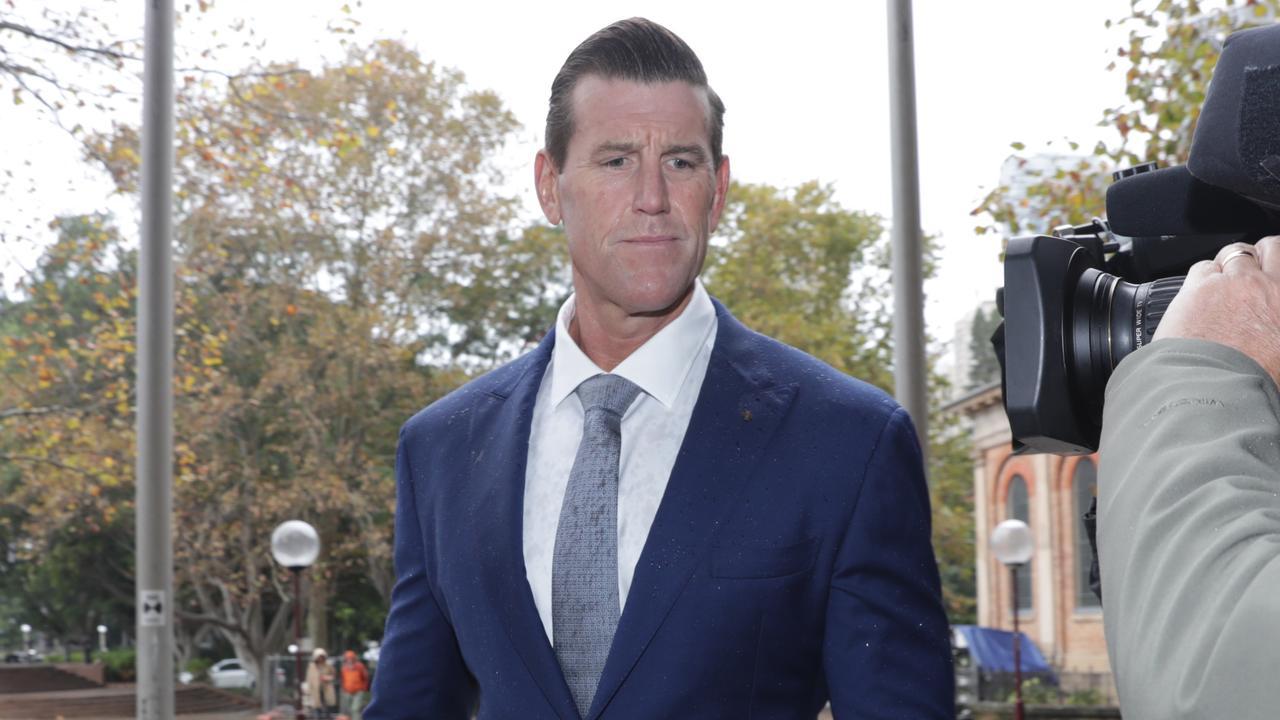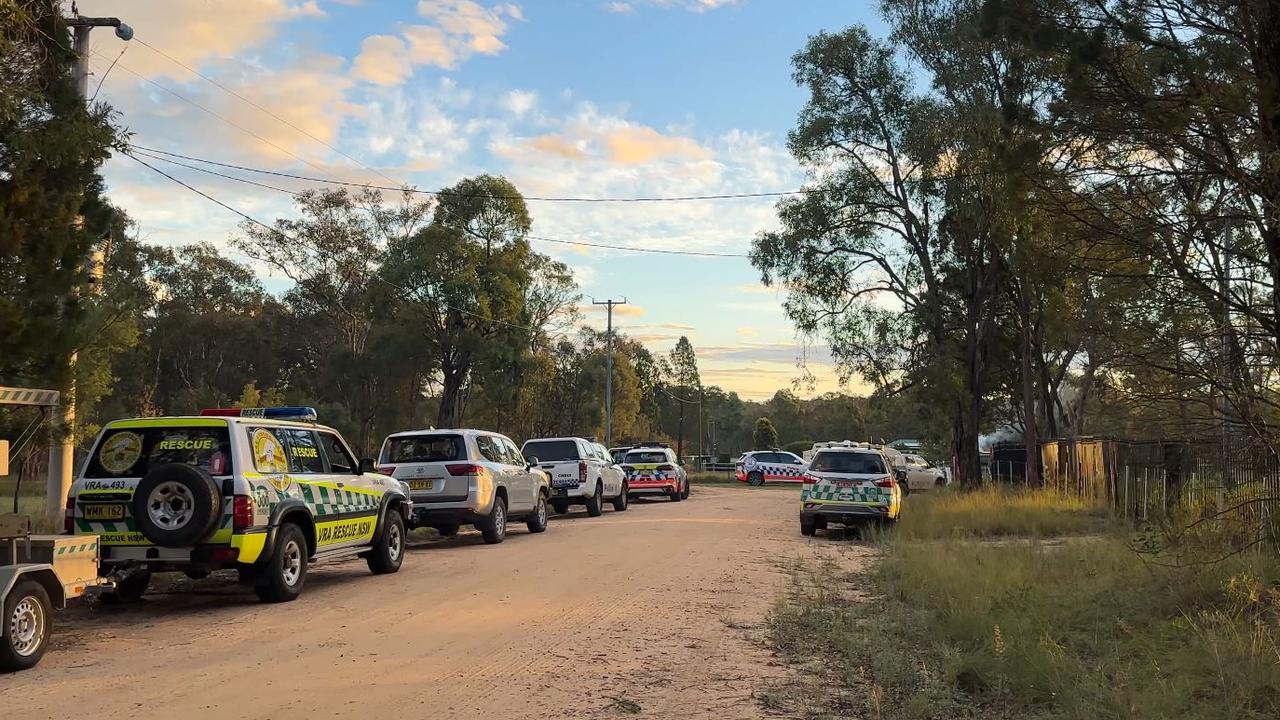Sydney truckie Fayez Hatahet jailed, Syrian war photos revealed
Declaring he would now ‘bleed for Australia’ a Sydney truckie who claimed he was in Syria to find his brother-in-law had his lie exposed by his own Facebook page.
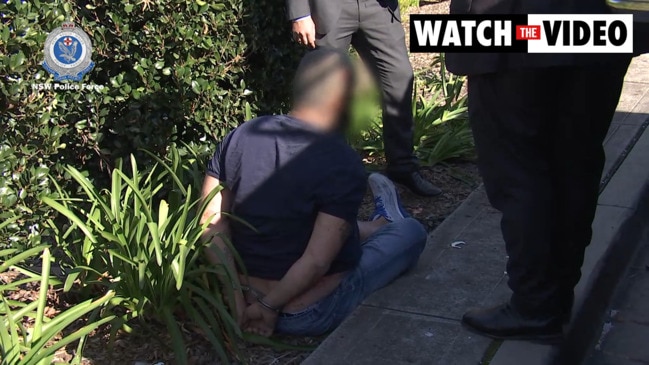
NSW
Don't miss out on the headlines from NSW. Followed categories will be added to My News.
A Sydney truckie jailed for fighting with al-Qaeda groups in Syria has had his excuse that he was only in the war-ravaged country to find his brother-in-law betrayed by his own videos and pictures – and now the Saturday Telegraph can reveal those damning images.
The images which expose the full extent of what Fayez Hatahet did while in the Syrian war zone can only be published after the Saturday Telegraph won a brief court battle this week to gain access to them.
The series of images and videos, obtained as part of the police case against Hatahet, paint a picture of his visits to Syria where his own kidnapping and torture have, he says, seen him renew his patriotism for Australia.
Posing with rifles, next to tanks and with RPGs at the height of the civil war Hatahet claimed in court he was only in the war-torn country to find his brother-in-law who had gone missing there.
The images from his first trip in 2012 and file had initially been heavily redacted by the Australian Federal Police but this week they agreed in court to allow the Saturday Telegraph to publish them.

Several were posted to Facebook by Hatahet under a different name, bragging about his time there. Others he emailed back to himself and his brother.
In some he is pointing a machine gun in camouflage. In others he films fighter jets screaming ahead with bombs going off in the distance.
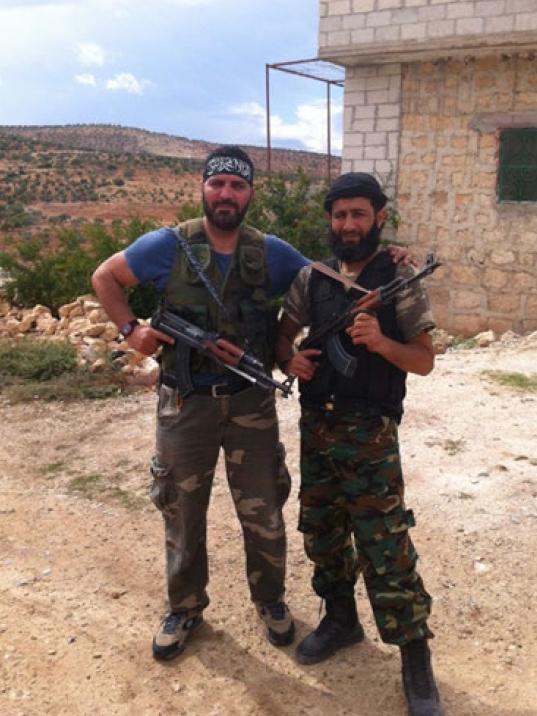
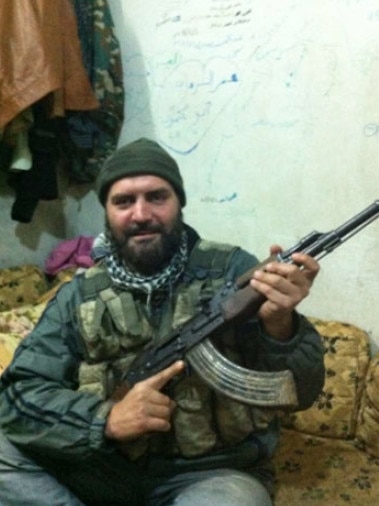
In the videos, religious songs can be heard declaring their success in killing Syrian army soldiers.
Giving evidence in court from the high risk offenders unit at Goulburn Supermax, Hatahet, now 46, claimed he kept the videos to “document” the war.
“This is something happening in my homeland and this is something I like to document for me or the next generation to remind us what is happening there,” he said.
“Our land is being destroyed.
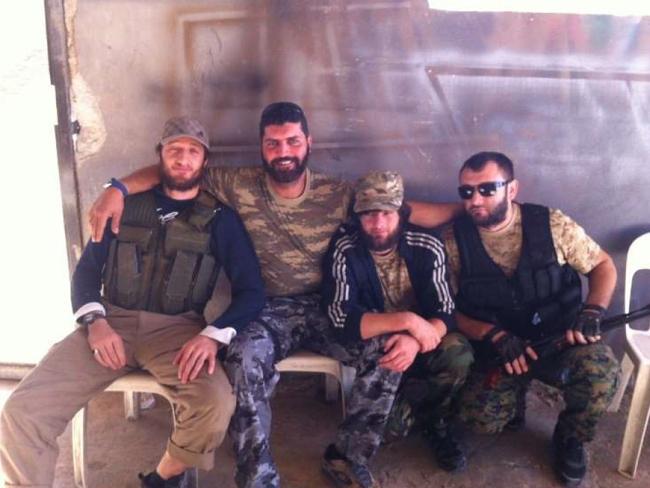
“They’re singing about paradise (in the videos) like Gangsters Paradise is that religious or is it gangster?”
Hatahet said he never thought what he did was breaking Australian law and would never harm his adopted home country.
He said he only joined the rebel groups in order to stay in Syria to find his brother-in-law and that possessing a gun was normal in the Middle East.
When pressed on why he asked someone to video him firing a machine gun he said “as a man everyone would love to try that”.
In a letter to the judge sentencing him, Hatahet even claimed he would “bleed for this country … if Australia needs me”.
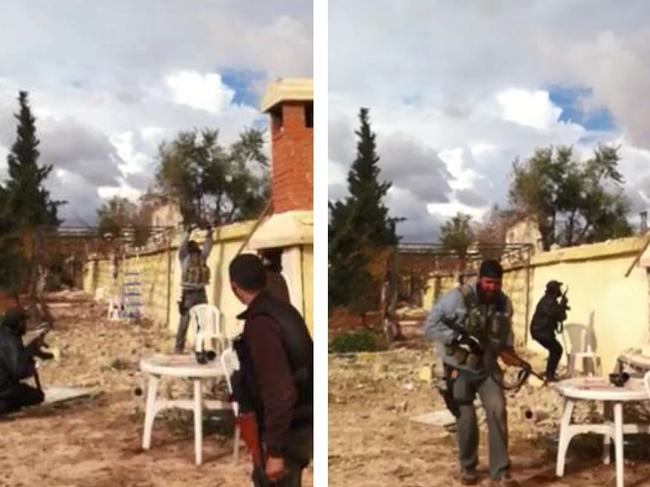
“I wish I had not done it, in hindsight I wish I had contacted a lawyer about whether it was okay to go,” he wrote.
“I am grateful to (be) in Australia. I hope to close this chapter in my life and return home to my (family).”
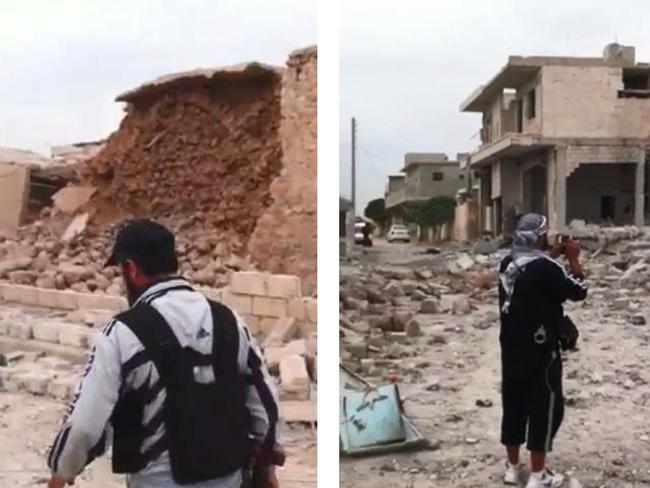
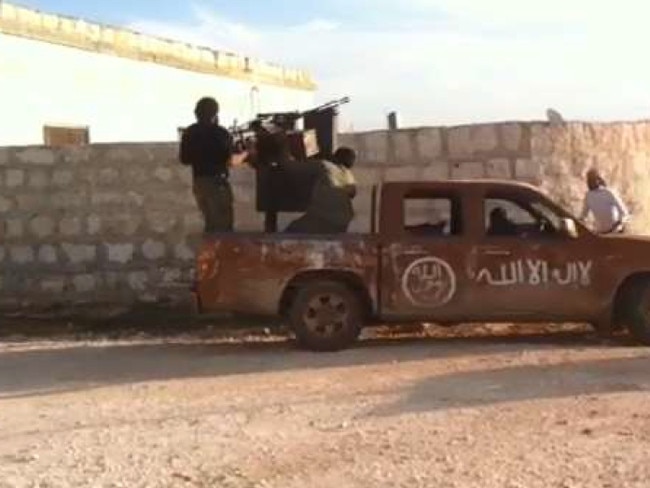
According to court documents his second trip to Syria in 2013 to “find his brother-in-law” did not go to plan.
Seven years later he was arrested and charged with foreign incursion offences by heavily armed police in dramatic scenes near his Greenacre home while running errands on Anzac Day.
He finally told officers the full story of what happened.
According to his interview with authorities he was apprehended by troops at the border, hung upside down “like a rotisserie chicken”, tortured, and accused of being a spy for 20 days.

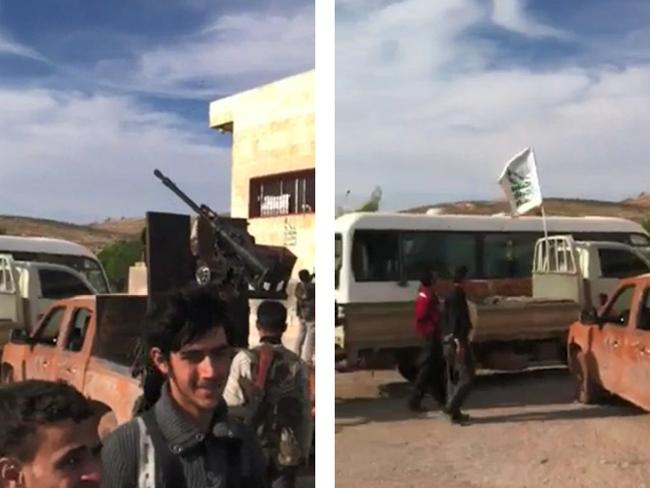
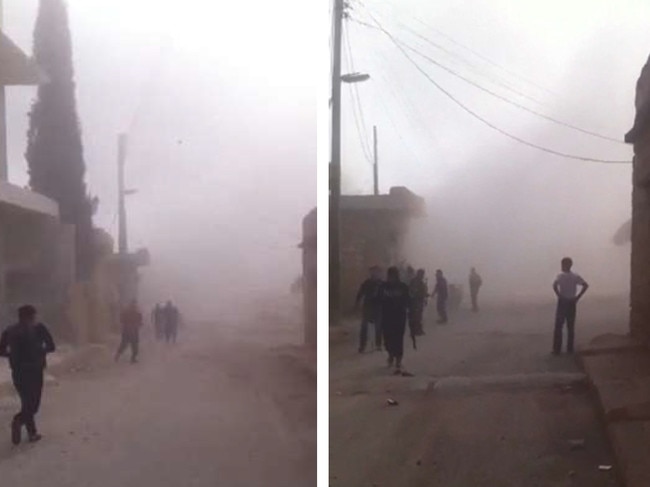
He was eventually handed back over by his kidnappers at the Turkish border bleeding with multiple broken bones after weeks of beatings when his family paid $60,000 for his release.
He was handcuffed virtually the whole time, he told the court, and forced to make recordings pleading for the money to his family in Australia.
“I started to feel, really, if I die it’s better for me,” he tells the officer in the interview obtained by the Sunday Telegraph.
“Like, I’m just lost hope. But this time, after the torture, someone else came and he screamed from outside,
“He said ‘My boss wants to talk to you. You are ready?’”.
Those admissions to authorities, and his plea of guilty in the District Court in July, have led to him spending 23 hours a day in a tiny Supermax cell on remand for the past two years since his arrest.


Only recently has he been allowed a few hours a day outside of the four walls he now calls home.
During his time in custody Hatahet at one point spent 157 days locked in his cell during a coronavirus lockdown, the court heard.
Last Friday, nine years after he first ventured into Syria, Judge Huw Baker sentenced him to five years in jail, with a non-parole period of three years.
He will be eligible for parole, because of time served in custody, next year.
News tips: anton.rose@news.com.au




